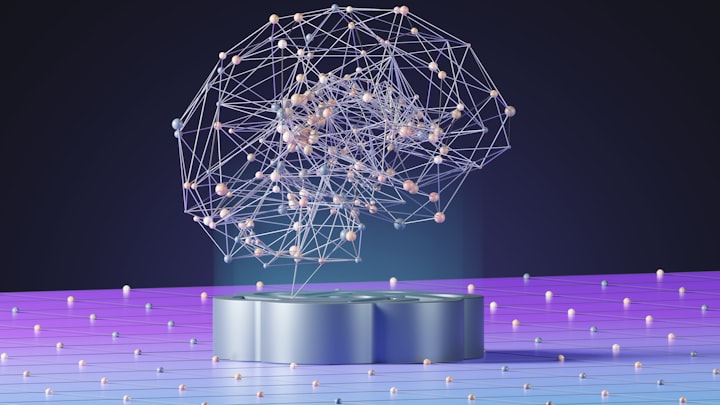The AI Revolution
Transforming Content Creation in the Media Industry
The Impact of AI-Driven Content Creation on the Media Industry: Explore the rise of AI-driven content creation, its benefits and challenges, automation in content creation, impact on journalism and news reporting, role in content personalization, ethical considerations, future trends, and its impact on the creator economy.
AI-Driven Content Creation and Its Impact on the Media Industry
The Rise of AI-Driven Content Creation
AI-driven content creation has emerged as a pivotal force in the media and entertainment industry, catalyzing strategic investments and anchoring a determined pursuit to meet the ever-growing viewer demands. This amalgamation of expertise from both the media and entertainment, and technology spheres has led to the development and refinement of a myriad of AI-driven innovations, shaping the landscape of content creation and distribution. For instance, companies like Netflix and Spotify have leveraged AI to personalize content recommendations, leading to enhanced user experiences and increased customer engagement. The global AI in the media & entertainment market reached a noteworthy valuation of USD 10.87 billion in 2021, with a projected Compound Annual Growth Rate (CAGR) of 26.9% anticipated from 2022 through 2030, signifying the industry's rapid evolution and adoption of AI-driven solutions.
Benefits and Challenges of AI in the Media Industry
In addition to these benefits, AI’s impact extends to consumer experience, personalization, efficiency, and marketing and audience engagement within the media and entertainment industry. For example, AI algorithms can analyze vast amounts of data to create tailored content and enhance consumer experiences, leading to more targeted and engaging content for the audience. However, the use of AI in content creation is not without its challenges. Potential downsides include the risk of lack of creativity, limited human touch, dependence on technology, potential for errors, and ethical concerns that need to be carefully addressed and mitigated to ensure responsible and effective use of AI in content creation.
Automation in Content Creation
The implementation of AI has streamlined the content creation process by automating various tasks such as video editing, proofreading, and ad copy generation, resulting in significant cost savings and increased productivity. The advantages of leveraging AI for content creation extend to speed, efficiency, cost-effectiveness, accuracy, personalization, and scalability, marking a transformative shift in the way content is created and distributed in the media and entertainment industry. Moreover, AI-driven content creation tools such as Copy.ai, Canva, and Wordsmith have empowered creators with the ability to efficiently produce high-quality content at scale, amplifying their creative output and reach. Additionally, AI-driven automation has been instrumental in optimizing advertising strategies, allowing businesses to refine their marketing approaches and measure their online impact more accurately.
Impact on Journalism and News Reporting
The introduction of AI in content creation has revolutionized journalism and news reporting, empowering media organizations to streamline their processes and improve the quality of their content. For instance, The Washington Post has effectively utilized AI to enhance its reporting capabilities and engage readers through personalized content, thereby demonstrating the tangible impact of AI on journalism and news reporting. The automation of various aspects of content creation through AI-powered tools has not only increased efficiency but also enabled media outlets to analyze and interpret data more effectively, leading to the creation of insightful and engaging news stories and articles. Furthermore, AI-powered content creation has facilitated the development of innovative storytelling formats, enabling media organizations to deliver content that resonates with their audience in a more compelling and personalized manner.

Role of AI in Content Personalization
AI's role in content personalization extends to enhancing user experiences by providing tailored content recommendations and predicting user preferences, thereby enriching the overall consumer journey. Streaming services like Netflix have harnessed the power of AI to analyze user viewing habits and preferences, enabling them to deliver personalized content recommendations that align with individual preferences and behaviors. This level of personalization not only enhances user satisfaction but also contributes to increased engagement and retention, underscoring the pivotal role of AI in shaping the content consumption experience within the media and entertainment industry. Additionally, AI's impact on the business side of the industry is evident in its ability to optimize advertising strategies and provide valuable data insights, allowing organizations to make informed decisions and maximize their marketing ROI.
Ethical Considerations and Concerns
The potential downsides of heavily relying on AI for content creation, such as the risk of lack of creativity, limited human touch, and ethical concerns, necessitate a thoughtful and proactive approach to mitigate these challenges and ensure the ethical use of AI in content creation. For example, concerns about bias and discrimination in AI-generated content highlight the need for robust ethical frameworks and oversight to safeguard against unintended consequences and ensure fair and unbiased content creation and distribution. Furthermore, the evolving landscape of AI-driven content creation warrants ongoing dialogue and collaboration between industry stakeholders to establish best practices and guidelines that uphold ethical standards and promote responsible innovation within the media and entertainment industry.
Future Trends and Possibilities
Looking ahead, the future of AI-driven content creation in the media industry is poised for further advancements and innovations, with the potential for more sophisticated AI tools and increased integration of voice assistants, augmented reality, and virtual reality. This evolution presents opportunities for content creators to leverage AI-driven solutions to automate repetitive tasks, generate content quickly, and ensure consistency and scalability, thereby unlocking new avenues for creativity and productivity. Furthermore, the increased use of AI in data analysis and the greater collaboration between humans and machines are expected to redefine the content creation process, leading to more efficient and impactful content production and distribution. For instance, the integration of AI-driven solutions in content creation is anticipated to enable media organizations to gain deeper insights into user behavior, content preferences, and market trends, empowering them to deliver more relevant and engaging content to their audience.
Impact of AI on the Creator Economy
In addition to its influence on traditional media and entertainment outlets, AI has significantly reshaped the creator economy by empowering content creators and influencers with innovative tools and capabilities. For example, AI has played a pivotal role in helping creators generate ideas, optimize content, and match with brands, thereby expanding their opportunities for monetization and growth. Social media platforms like Instagram, TikTok, and YouTube have become thriving ecosystems for creators to share their content and engage with their audience, with AI-driven recommendations and insights playing a crucial role in amplifying their reach and impact. The creator economy, estimated to be worth $104.2 billion, has been fundamentally transformed by AI, unlocking new avenues for technology-driven changes and innovations that continue to redefine the landscape of content creation and distribution. As AI continues to evolve, its impact on the creator economy is expected to catalyze further growth and diversification, offering creators and influencers unprecedented opportunities to connect with their audience and drive meaningful engagement through compelling and personalized content experiences.
This expansive and transformative impact of AI-driven content creation on the media industry underscores the need for a proactive and balanced approach to harnessing the potential of AI while mitigating its challenges and ethical considerations. As the industry continues to evolve, the responsible integration of AI in content creation processes will be essential to ensure sustainable innovation and equitable value creation for creators, businesses, and audiences alike.
About the Creator
Timothy A Rowland
I’m an every day human Xennial from the United States. I have many interest. I just want to improve your life and maybe entertain you. Available for editing and LeadsLeap projects at: https://www.fiverr.com/greyhatcompany
Enjoyed the story? Support the Creator.
Subscribe for free to receive all their stories in your feed. You could also pledge your support or give them a one-off tip, letting them know you appreciate their work.







Comments
There are no comments for this story
Be the first to respond and start the conversation.